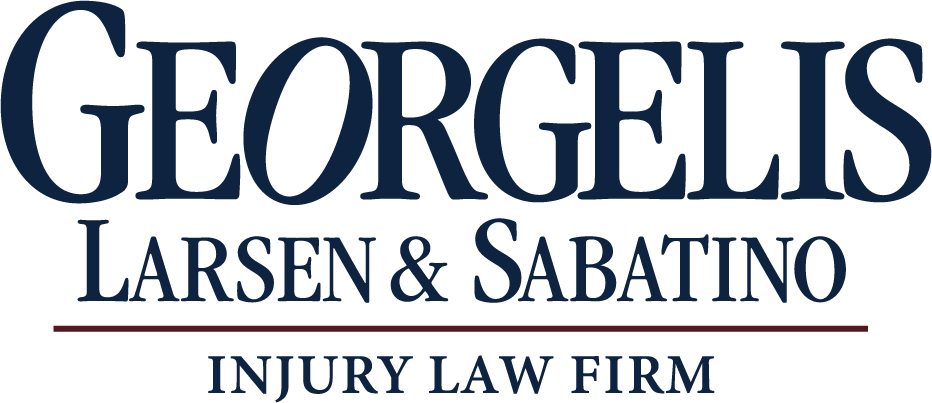Understanding Medical Maximum Improvement

No one expects to be injured at work, but it can happen. If you are one of the millions of workers each year who find themselves injured on the job, you may be entitled to workers’ compensation benefits. Workers’ comp is designed to provide medical care and wage replacement for employees who get hurt while on the clock.
But what happens when your treatment reaches a plateau, and your doctor determines that you’ve reached the maximum level of medical improvement, or MMI? Let’s dive into this issue and help you understand what medical maximum improvement means for your workers’ comp claim.
Medical Maximum Improvement Explained
Medical maximum improvement is a term used by healthcare providers and the legal community to determine the point at which you’re not expected to see any more improvements in your medical condition. When you’ve reached your medical maximum improvement, your doctor will inform you that your treatment options may no longer be effective as there is no expectation for further improvement in your condition.
In other words, it means that your condition has stabilized, and your doctor believes that you have reached the optimal level of medical care for your injury or illness. MMI is an important milestone in the workers’ compensation process, as it signals that your treating physician has done all they can to improve your condition, and any remaining limitations, restrictions and/or disabilities are likely permanent.
When you’ve reached this point, your doctor will make an estimation of what work you can physically do on an ongoing basis by documenting your capabilities for your employer. Your employer may offer accommodation to make your job duties more comfortable and less physically demanding.
If you’ve been informed that you have reached your MMI, consult with a workers’ compensation attorney to understand your rights for when, and if you return to work.
How MMI Affects Your Workers’ Comp Claim
Once you’ve reached MMI, it could be time for the next step in the workers’ comp process. Your employer’s insurance company may assess your condition and determine if you’re eligible for permanent impairment benefits. These benefits are paid based on your permanent impairment rating, which is a measure of the severity of your injury or illness.
The impairment rating system indicates the lasting effect of the injury on your body and the extent of the functionality that you’ve lost as a result of the injury. When determining compensation, it is common practice to multiply the weeks of compensation by the impairment rating percentage, which is then multiplied by the rate of compensation you were receiving before your injury.
In general, the more severe your impairment, the higher your permanent impairment rating will be, and the more benefits you’ll receive. To determine your impairment rating, your doctor will perform a functional capacity evaluation, which is a series of tests to measure your physical abilities and limitations. Your doctor will then assign a rating based on the American Medical Association’s Guides to the Evaluation of Permanent Impairment.
Impairment ratings can range from 0% to 100%, with higher ratings reflecting more severe disabilities. Once you’ve been assigned a rating, your employer’s insurance company will use it to determine your permanent impairment benefits.
Reaching maximum medical improvement can also signal other changes in your workers’ compensation claim. Employers and their insurance carriers like to order independent medical examinations, or IMEs, when a claimant plateaus, medically. These evaluations are conducted by doctors of their choosing, which often means opinions adverse to those of an injured worker’s treating physician. It is critical to a top workers comp attorney involved on your behalf before the IME process begins. There are distinct strategical advantages lost when your lawyer must reactively respond to a Modification, Suspension or Termination Petition as opposed to proactively preparing a claimant for how to best handle an IME.
This holds true in the context of a job offer by the employer, as well. These offers must be made by the employer in a specific way addressed by Pennsylvania workers’ compensation law. Moreover, if an offer of employment is based upon the opinions of an IME doctor, the claimant has certain options available, in response. Thus, the benefit of having the best workers compensation lawyers on your side before the insurance company makes its move is of immeasurable benefit.
All of these processes can be complicated, so it’s essential to consult with an attorney whose focus is on workers’ comp cases to ensure that you receive fair compensation.
When to Get an Attorney Involved
Navigating the workers’ comp system can be challenging, especially if you’re not familiar with legal jargon and medical terminology. Reaching MMI can be a critical turning point in your workers’ comp claim. It’s essential to have an experienced workers’ comp attorney who can help you navigate the legal system and protect your rights.
Having an attorney by your side during this process is vital for several reasons:
- Accurate Impairment Rating: An attorney can ensure that an impairment rating accurately reflects the severity of your injuries. They can challenge the doctor’s assessment if it seems too low or does not take into account all your injuries or limitations.
- Fair Compensation: The employer and its workers compensation insurance carrier are actively working to pay you as little as possible for your claim. The right attorney can negotiate on your behalf to ensure you get the maximum benefits you’re entitled to.
- Medical Evidence: Sometimes, reaching MMI doesn’t mean you’re fully recovered. You may still require medical treatment or have ongoing health issues related to the injury. A lawyer can help present this evidence to argue for continued medical care or higher benefits.
- Navigating the System: The workers’ compensation system can be complicated and confusing, particularly when you’re dealing with MMI, impairment ratings, independent medical evaluations and job offers. A top comp attorney can guide you through the process, handle paperwork, and represent you in any hearings or appeals.
In essence, a workers’ comp attorney is your advocate, working to protect your rights and interests after a workplace injury. Their knowledge, skills, and guidance can make a significant difference in the outcome of your claim.
Workers Compensation Attorneys in Lancaster, Pa.
Medical maximum improvement is a critical state in workers’ compensation cases. Reaching MMI means that your condition has stabilized, and any remaining disabilities are likely permanent. It’s essential to understand the significance of MMI and to have an experienced workers’ comp attorney on your side to ensure that you receive fair compensation.
The legal team at Georgelis, Larsen & Sabatino Injury Law Firm, P.C. has successfully handled countless workers’ compensation claims for injured workers who have reached their maximum medical improvement. If you were injured and are in this situation, contact us for a free evaluation of your case. The workers’ comp system can be overwhelming and confusing, and we are here to help.
Our sole focus at our firm is representing those who have been injured in accidents or on the job. Your employer’s insurance company has a team of lawyers on their side, and you deserve the same representation. Call us today at 1-800-HURT-NOW or start a conversation with us online. We never charge a fee for our time and are only compensated when we win your case.





